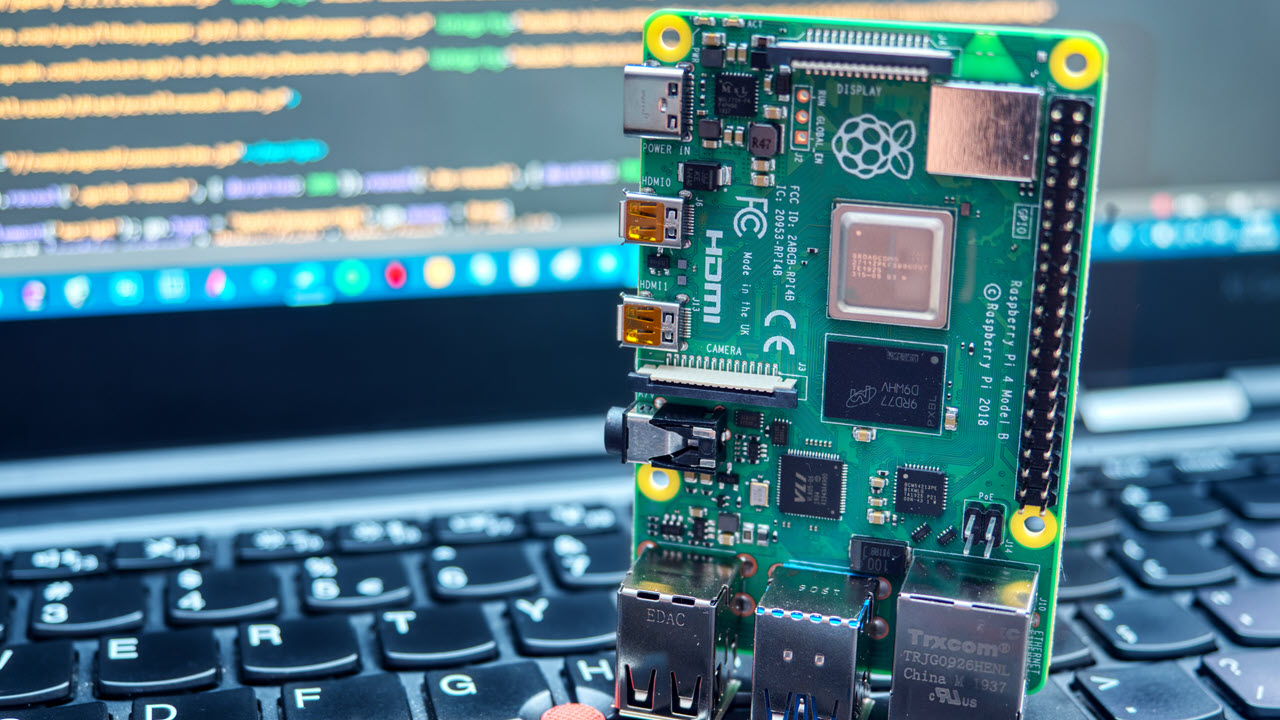It is safe to say that the Raspberry Pi Pico and its RP2040 SoC have been popular. The Pico has only been on the market for a few weeks, but already has sold 250,000 units with 750,000 on back order. There is a need for more boards powered by the RP2040 and partners such as Adafruit, Pimoroni, Adafruit and Sparkfun are releasing their own hardware, many with features not found on the Pico.
Raspberry Pi’s in house application specific integrated circuit (ASIC) team are working on the next iteration, and seems to be focused on lightweight accelerators for ultra low power machine learning applications.
During Upton’s talk at 40 minutes the slide changes and we see “Future Directions” a slide that shows three current generation ‘Pi Silicon’ boards, two of which are from board partners, SparkFun’s MicroMod RP2040 and Arduino’s Nano RP2040 Connect. The third is from ArduCam and they are working on the ArduCam Pico4ML which incorporates machine learning, camera, microphone and screen into a the Pico package.
The last bullet point hints at what the future silicon could be. It may come in the form of lightweight accelerators possibly 4-8 multiply-accumulates (MACs) per clock cycle. In Upton’s talk he says that it is “overwhelmingly likely that there will be some other piece of silicon from Raspberry Pi”.
This article has been published from the source link without modifications to the text. Only the headline has been changed.
